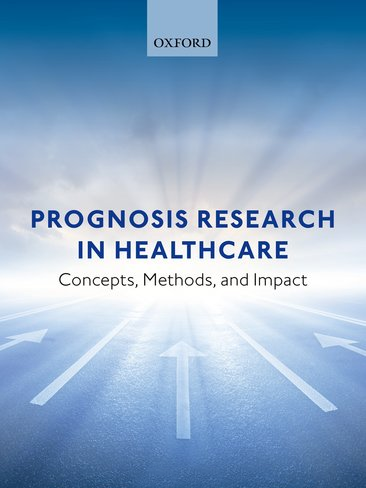


What is going to happen to me?
Most patients ask this question after learning they have a particular disease or health condition. They want a prognosis, a forecast or prediction of their future health, to help prepare for different possible outcomes and when they may occur. For example, will they be alive five years after a cancer diagnosis? Might they develop pre-eclampsia during pregnancy? When will they return to work after back pain? Answers to such questions guide clinical decision-making and personalized healthcare, where choices about healthcare are tailored to an individual's prognosis and likely response to treatments.
This motivates prognosis research, the study of future outcomes among people with a particular disease or health condition, and its four key types: overall prognosis, prognostic factors, prognostic models, and predictors of treatment effect.
Prognosis Research in Healthcare: Concepts, Methods, and Impact addresses these different types of prognosis research, and provides the reader with guidance on how to design, conduct, analyse and report each type. This is applied to primary prognosis studies, and to systematic reviews and meta-analysis of prognosis studies.
Intended for a wide audience, the book provides numerous examples, covering a broad spectrum of disease and clinical settings. It details fundamental concepts and methods of prognosis research, but also highlights hot topics including the use of big data, electronic healthcare datasets, data sharing, advanced statistical methods, and machine learning.
With contributions from leading experts, this comprehensive textbook engages and encourages the reader to understand and undertake prognosis research in the modern era of personalized healthcare. It is an ideal resource for students, clinicians, researchers, methodologists, healthcare professionals and policymakers, who wish to learn more about the role of prognosis in healthcare, the modes of prognosis research, and the translation of prognosis research results for improving healthcare outcomes in individuals and populations.
3. Fundamental statistical methods for prognosis research
4. Ten principles to strengthen prognosis research
7. Prognostic model research
9. Systematic reviews and meta-analysis of prognosis research studies
13. Individual participant data meta-analysis of prognosis studies
